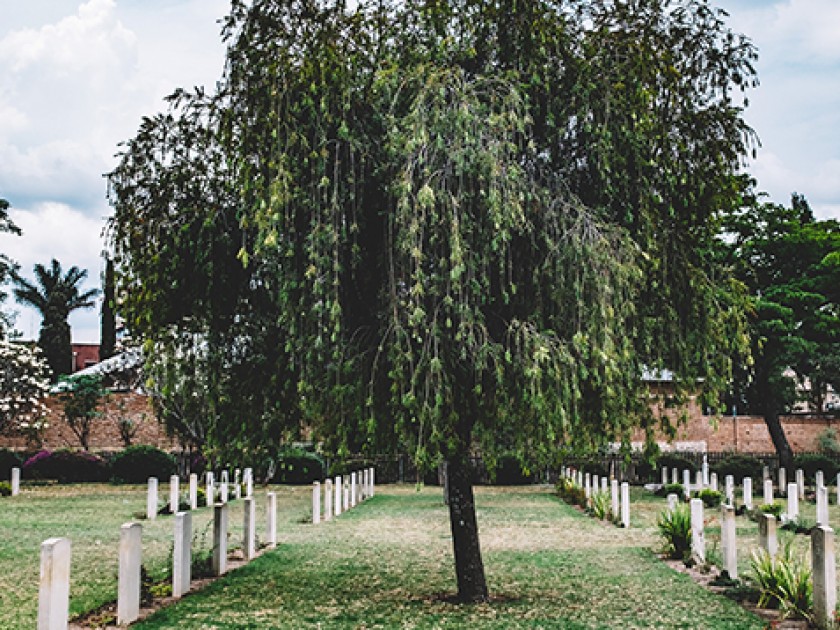
Méira Cook is the author of the recently published novel Once More With Feeling. Earlier this week, she wrote about learning to mourn for her mother. She is blogging here all week as part of Jewish Book Council’s Visiting Scribe series.
In the process of writing a novel about family, I realized that all families have their secrets. I’m not referring here to the Binder family, whose secrets I became aware of while living for so long inside the pages of Once More With Feeling, but to my own family of origin whose secrets I knew so well that I had forgotten that others might find them interesting.
If, as I grew to suspect, all families have secrets, then ours was death. Although most of the older generation passed away at an early age, I never discovered how anyone had died. They died, was the reply to all my questions. How does a person die? This was always offered with a shrug and an eloquent hand gesture meant to imply resignation: Well, how does anybody die?
Ever valiant, my father once explained to my sister and me that the cause of death was when a person’s heart stopped beating. This was always the case, no exceptions. Even cancer, he said, even old age or an automobile accident. If a man jumped out of an eleventh floor building and was shot on his way past the ninth floor and choked on a pigeon as he passed the seventh floor and was decapitated by a flying hatchet as he plummeted past the fifth floor, he still died of a not-beating heart.
Disease and accident might set a person off on their mortal trajectory, he said, but it all came down to the heart in the end. The hour and minute and second hands on the old ticker stopping, for want of a better word: dead.
Once a year, during the busy, God-bothering, sociable days between Rosh Hashanah and Yom Kippur, my mother would visit her family, all of whom were domiciled in the nearby Westpark Cemetery, although not in any particular section because we were not the kind of family to admit to, let alone plan for, death, by way of advance booking and family plots. She would pass the day with her uncles, her grandmother, and her mother, but it was at her father’s grave that she lingered. She missed him the most because she’d missed him the longest.
I used to ask my mother what she did in the cemetery because I wanted to know what I might be expected to do one day at my parents’ graves — although this was not a thought I could articulate, even to myself. As she had once demonstrated how to separate whites from yolks, as she had once bought me tampons and explained how to use them, I wanted her to show me how to mourn, even if the object of my mournfulness was the distant vanishing point of her someday-never disappearance from the world.
She shrugged. I just catch him up on the family, she finally said. What you and your sister are up to. A lot happens in a year, she clarified. Babies and so forth.
Does he … I started to ask but stopped because I couldn’t think how to finish.
Of course not, she snapped. Dead is dead, what can he say?
Dead! She had never voiced that word before and it shocked me. Dead is dead, kiddo, don’t make me spell it out! My mother’s nihilism, even — especially — in the context of her sentimental attachment to the hospitable dead would be devastating, I knew, at some future point of her not-thereness when she could no longer be questioned about mortality because, like a drop of water falling into the ocean, she had become indivisible with her death. She was an elusive silver fish, always swimming away, and water was her medium because it was fluent and mysterious and unlikely to be caught in a child’s imperfect, sieve-like understanding.
But what are the lessons of water? That it takes the shape of the vessel into which it is poured? That it rises as steam and falls as rain, its molecules in constant motion as if agitated by their own indecisiveness? That it provides the solvent for the ounce or so of human chemicals from which we are made?
When I was little I didn’t like to be separated from her, so one day my mother sat me on the kitchen counter and poured a glass of water from the faucet. Then she inserted her pinky finger in the water.
What happens when you take out the finger? she asked.
Nothing. Nothing happens.
This was how she taught me that no one is indispensable, that water closes over what has displaced it, that loss finds its own level.
Meira Cook is the award-winning author of the novels Once More With Feeling; The House on Sugarbush Road, which won the McNally Robinson Book of the Year Award; and Nightwatching, which won the Margaret Laurence Award for Fiction. She has also published five poetry collections, most recently Monologue Dogs, which was shortlisted for the 2016 Lansdowne Prize for Poetry and for the 2016 McNally Robinson Book of the Year Award. She has served as Writer in Residence at the University of Manitoba’s Centre for Creative Writing and Oral Culture, and the Winnipeg Public Library. Born and raised in Johannesburg, South Africa, she now lives in Winnipeg.